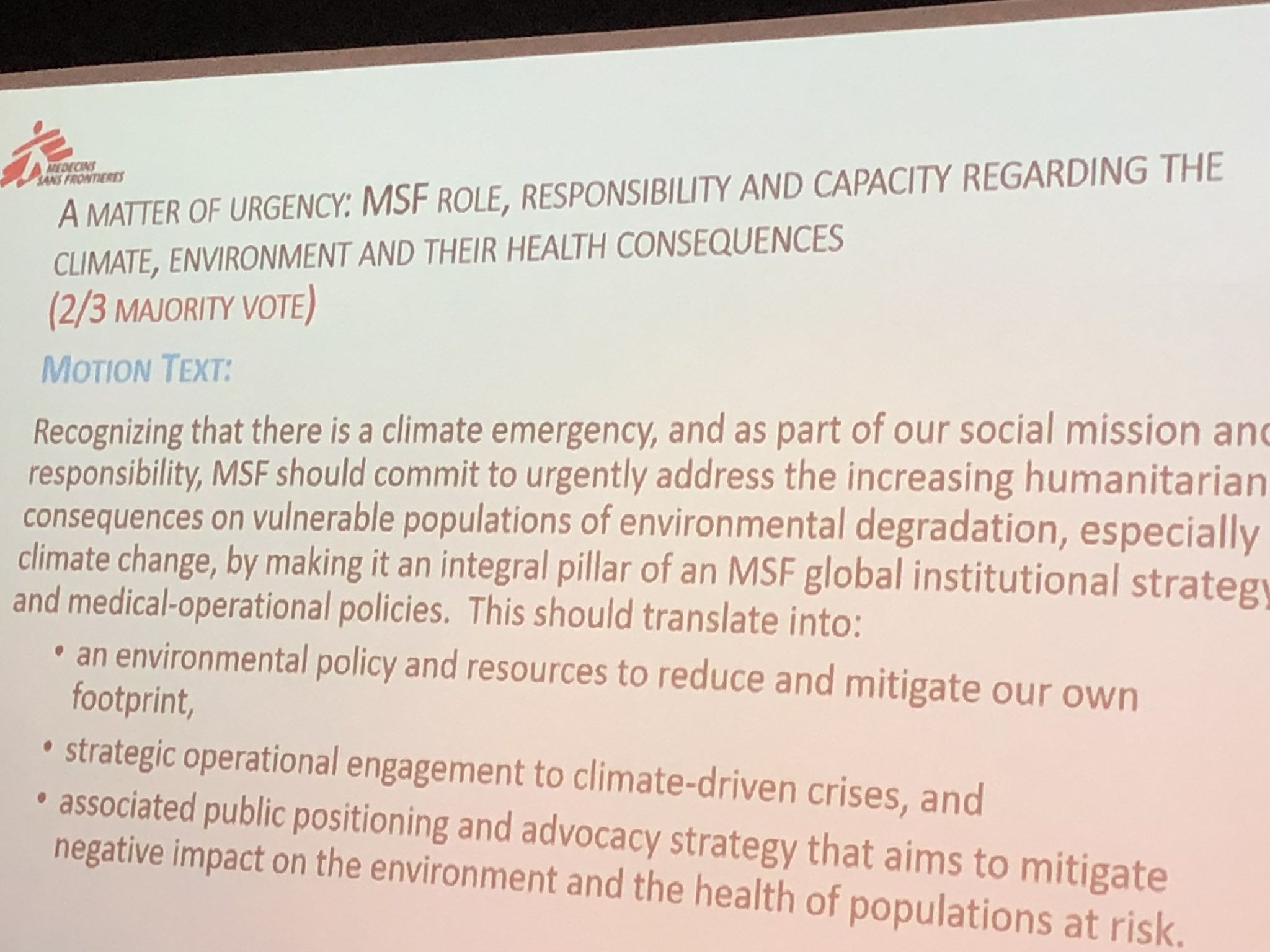Carol Devine Bolsters Motion on Humanitarian Climate Emergency
July 9, 2019

Community Scholar Carol Devine helped present a successful motion on climate change and humanitarianism at this year's Doctors Without Borders (MSF) Annual General Assembly.
The motion was titled A Matter of Urgency: MSF Role, Responsibility and Capacity Regarding the Climate, Environment and their Health Consequences. It is the result of long-running discussions within MSF and work at the General Assembly to draft, get input about and finalize the motion.
In partnership with Dr Maria Guevara, François Delfosse of MSF's Operational Centre Geneva, and Tyler Christie of Natural Capital Advisors, Devine also presented the MSF Environmental Impact Toolkit. The toolkit was offered to help guide the organization measure and mitigate it's environmental impact as it transforms how it works in a climate-affected, resource-limited world.
Devine draws direct links between her work at MSF and the work at the Dahdaleh Institute. Frequently collaborating with fellow Community Scholar Linn Biorklund Belliveau, the two share a focus on the intersecting impacts of climate change, migration and policy on the health of vulnerable populations.
Full Text
A matter of urgency: MSF role, responsibility and capacity regarding the climate, environment and their health consequences
Recognizing that there is a climate emergency, and as part of our social mission and responsibility, MSF should commit to urgently address the increasing humanitarian consequences on vulnerable populations of environmental degradation, especially climate change, by making it an integral pillar of an MSF global institutional strategy and medical-operational policies. This should translate into:
- an environmental policy and resources to reduce and mitigate our own footprint,
- strategic operational engagement to climate-driven crises, and
- associated public positioning and advocacy strategy that aims to mitigate negative impact on the environment and the health of populations at risk.
Related Content
Next/Previous
Mark Terry Co-Founds ASLE Youth & Environmental Studies Group »
« Trainee Program: 2018-2019 Year In Review





